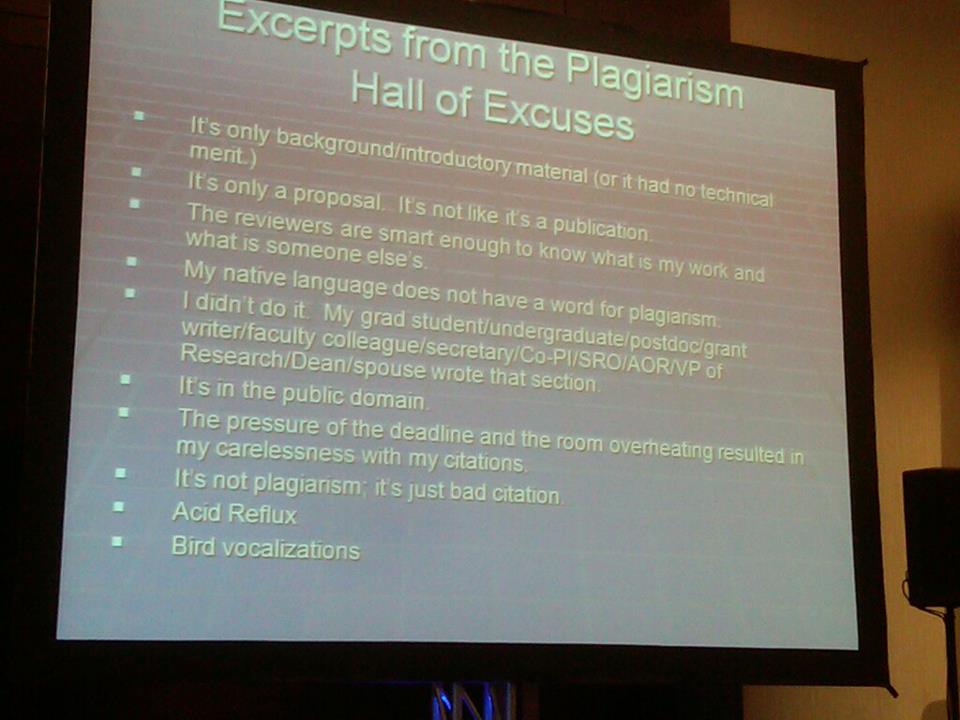
The authors of a 2021 article on “cognitive radio” have lost the paper after the journal learned that they’d pilfered the work from a doctoral dissertation.
“A Cluster-Based Distributed Cooperative Spectrum Sensing Techniques in Cognitive Radio” was published in the proceedings of the 2020 International Conference on Innovative Data Communication Technologies and Application, which was held in Coimbatore, India. The proceedings was a supplement to Innovative Data Communication Technologies and Application, a Springer Nature title.
Cognitive radio, according to Wikipedia, “can intelligently detect whether any portion of the spectrum is in use, and can temporarily use it without interfering with the transmissions of other users.”
In that regard, the technology is very much unlike writing a journal article, a practice in which the use of someone else’s words and ideas — in this case, one Ganesh Babu, whose 2019 doctoral dissertation for St. Peter’s Institute of Higher Education and Research provided much of the text for the published paper — is a zero-sum affair.
According to the retraction notice:
The Volume Editors and authors retract this conference paper [1] because it has substantial overlap with a PhD thesis by a different author [2]. N. Shwetha, N. Gangadhar, and Shivaputra agree to this retraction; L. Niranjan has not responded to any correspondence from the publisher about this retraction.
[1] Shwetha N., Gangadhar N., Niranjan L., Shivaputra (2021) A Cluster-Based Distributed Cooperative Spectrum Sensing Techniques in Cognitive Radio. In: Raj J.S., Iliyasu A.M., Bestak R., Baig Z.A. (eds) Innovative Data Communication Technologies and Application. Lecture Notes on Data Engineering and Communications Technologies, vol 59. Springer, Singapore. https://doi.org/10.1007/978-981- 15-9651-3_20
[2] Babu G., (2019) Analysis and Evaluation of Distributed Cooperative Spectrum Sensing Techniques in Cognitive Radio Sensor Networks, St. Peters Institute of Higher Education and Research; 2019 http://hdl.handle.net/10603/280064
The retraction note to this chapter is available at https://doi.org/10.1007/978-981-15-9651-3_72
Babu told Retraction Watch that he discovered the theft while perusing Google Scholar, and that he was satisfied with how the journal handled the matter.
Shwetha, of the Dr. Ambedkar Institute of Technology in Bangalore, did not respond to a request for comment.
The theft of material from PhD theses might not be the most common pastime in academia, but it does happen. Consider this case, involving the rector in Poland who resigned after a whistleblower outed him for having plagiarized a student’s dissertation, or this case from Australia in which a supervisor was ordered to retract a paper that plagiarized his student.
Like Retraction Watch? You can make a one-time tax-deductible contribution or a monthly tax-deductible donation to support our work, follow us on Twitter, like us on Facebook, add us to your RSS reader, or subscribe to our daily digest. If you find a retraction that’s not in our database, you can let us know here. For comments or feedback, email us at [email protected].
Is there any disertation retracted?
Example. The basic theory is not valid or other reason..
It is ironic that Babu Ganesh himself has numerous retractions for peer-review manipulation and plagiarism, also numerous articles flagged for tortured phrases:
https://pubpeer.com/search?q=Ganesh+Babu
A follow-up article would be great, as, Babu G., has gained numerous retractions recently. This one retracted last week:
https://pubpeer.com/publications/F1A61D42FCB39ACD785E2E4951EE8F#2
and this a few months ago:
https://pubpeer.com/publications/1C884B23EBF66435EAFF9FEE517FCC#2
He has also so many Pubpeer flagged papers for duplication and tortured phrases.
a follow up article would be great.